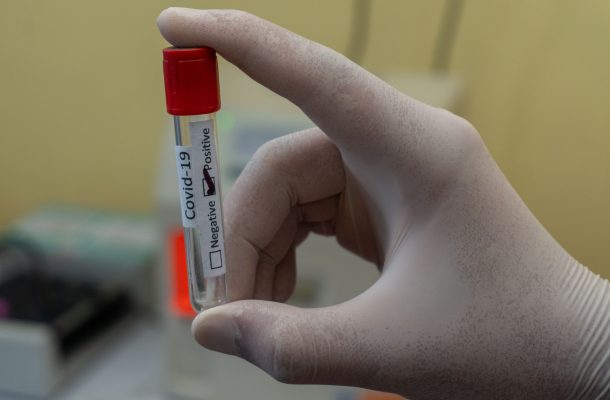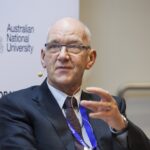COVID-19 treatment affected by a shortage of blood plasma

Australian Red Cross Lifeblood is calling on those who have fully recovered from COVID-19 to donate their blood plasma.
Many countries are trying to develop their COVID-19 vaccine as fast as they can. However, as the numbers of infections are continually appearing and a vaccine is not close to being produced, countries around the world are racing to get more blood plasma donations for blood plasma therapy. The need for blood plasma for research and treatment is now more than those who are able to donate.
According to Lifeblood, patients who have fully recovered from COVID-19 have antibodies to parts of SARS-CoV-2 in their plasma. The plasma will be used to treat patients in clinical trials, both as a form of direct treatment and as a medication called COVID-19 Immunoglobulin. Donations from these patients may aid in improving the immunity of patients who are still combating this disease.
“With the rise in COVID-19 infections in Melbourne and the increase in hospitalised patients, it’s more important than ever for those who have recovered from COVID-19 to donate convalescent plasma,” said Dr. James Daly, Medical Director Pathology Services at Lifeblood.
Australasian COVID-19 Trial (ASCOT) Principal Investigator, Associate Professor Steven Tong, a Royal Melbourne Hospital infectious diseases clinician and co-lead of clinical research at the Doherty Institute, said this was an exciting development for ASCOT.
“Convalescent plasma has been used historically for the 1918 Spanish and the 2009 influenza pandemics, pneumococcal pneumonia, and also for previous coronaviruses – SARS and MERS,” Associate Professor Tong said.
Queensland University of Technology immunology professor Ken Beagley says “It is assumed that someone who has recovered naturally from an infection will have antibodies in their plasma that can protect that person against further infections,”
“Giving these immune antibodies to an at-risk individual should prevent them from getting the disease or, if they have been exposed, it could lessen the severity of the infection.”
USA
In Wisconsin, America, Claire Stobb has donated blood plasma four times over the last four months. She doesn’t like needles or anything related to blood. But, after she recovered from COVID-19 in March, she has moved her fears aside and donated blood plasma four times over the last four months.
“There is right now a lot of demand, and not as much supply,” Dr. Stephen Hahn, commissioner of the Food and Drug Administration, told NBC News. One doctor in Florida told him she’s ordering plasma infusions for COVID-19 patients as soon as they get to the emergency room.
England
With a potential second wave also happening in England, people who have recovered from COVID-19 are being encouraged to donate their blood plasma by the NHS.
“So far more than 13,000 donations have been made, but more are urgently required to help in the event of a second wave,” said Dr. Gail Miflin, NHS Blood and Transplant (NHSBT) chief medical officer.
“The number of new infections has declined greatly which is fantastic news. Fewer people are getting COVID-19. This does mean we need to work harder to recruit new donors and we urgently need as many people as possible who have recovered to donate, to help us make as much progress as possible now.” He continued
Peter Horby, Professor of Emerging Infectious Diseases and Global Health in the Nuffield Department of Medicine, University of Oxford, and Chief Investigator for the Recovery trial, said: “For people unlucky enough to get seriously ill with COVID, the risk of death is alarmingly high. We desperately need better treatments and convalescent plasma holds real promise.
South Korea
The Korea Centre of Disease Control and Prevention (KCDC) is working in collaboration with GC Pharma on GC5131A, a COVID-19 plasma-based therapy. Although the company secured plasma for the clinical study, it still needs a continued supply of plasma donations for further production after the trial to develop it as a treatment, the company said.
KCDC has officially requested Shincheonji Church on the 26th of August, who made up 36% of those who were infected in Korea, to donate blood plasma from those who have recovered from COVID-19. The Government has since thanked the church for cooperating together.
On the 18th of August, Australia made an agreement to secure 25 million doses of vaccine with AstraZeneca, a medical organization in Oxford, who will then give the vaccine to Australians for free. However, this too is predicted to be completed by next year at the earliest according to Prime Minister Scott Morrison.
Thus there is an urgent need for blood plasma donations to be made now.
Lifeblood is looking for those who have fully recovered from COVID-19 to donate their plasma.
To donate you must:
• Have a lab-confirmed case of COVID-19;
• Have been free and clear of any symptoms for 28 days;
• Meet Lifeblood’s existing blood donation criteria.
‘The earlier you donate after the 28 days, the better,’ Dr. Daly said.
“It is a real opportunity for people who have battled COVID-19 to become part of the potential solution. Donating plasma is a simple, powerful act that could help a patient struggling to fight the disease.”
If you meet the requirements, please call Lifeblood at 13 14 95
This article was written by Seth Blake, the foreign correspondent for The Weekly Courier; and Cassandra Louise, a reporter for The Weekly Courier.
Seth Blake is the foreign correspondent for The Weekly Courier.












